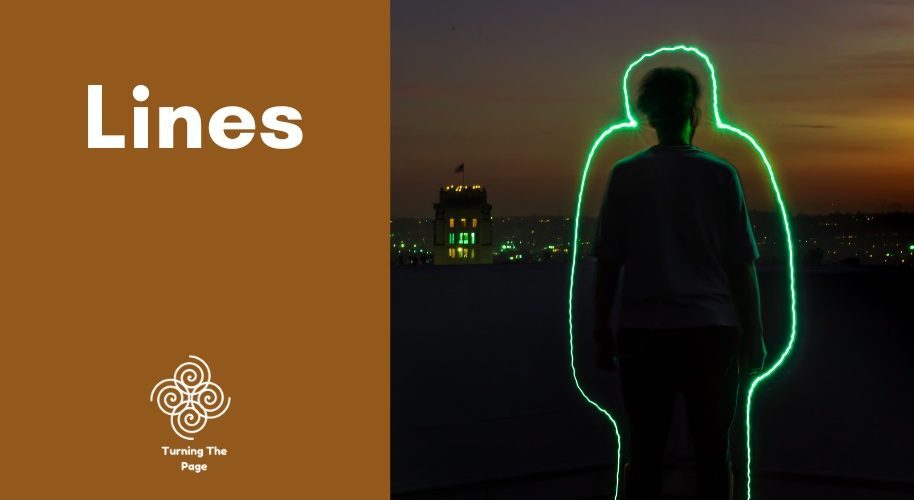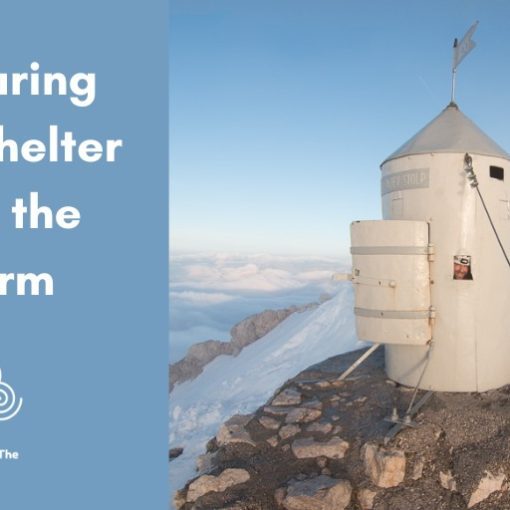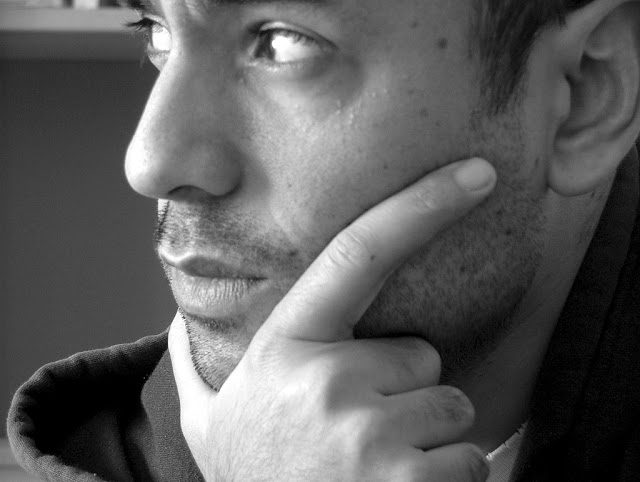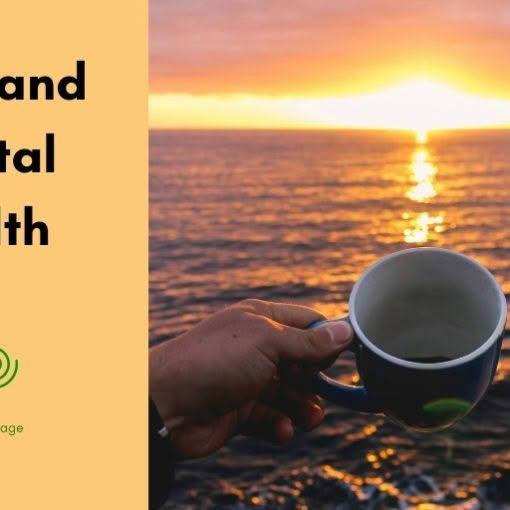We all have lines around us. Mostly invisible. People cross the lines, and we are hurt, but we also cross the lines of others.
The line had been crossed so many times that they were losing their own personal identity. Bullies, thugs, robbers, and thieves had crossed over into their personal space so many times that there was nothing left of who they were.
They felt like they were simply someone others used for their pleasure: a punching bag, a toy to play with, a commodity to be used and abandoned.
Lines had been crossed that were never meant to be. They were an object to be used and then discarded. No glory in them, no beauty inside. Impotent of purpose, much like a speck of dust in a corner.
For them, it felt much like this account from an abuse survivor.
I always felt that I was like a sort of Martian-I wasn’t from this planet.
I was never meant for this earth. And I was waiting to die, basically, just waiting for the day … I was waiting to die.
And I couldn’t relate to anybody. I felt so inferior and all the negative things, you know, so unworthy, or not worthwhile-without value.
And nobody would want to know me anyway and things like this.’ Peter Dale, John Allen and Lynda Measor, ‘Counselling adults who were abused as children: Clients’ perceptions of efficacy, client-counselor communication, and dissatisfaction’, British Journal of Guidance & Counselling, 26(2): (1998), 146.
It had started as a child, but it was still being played out in the whispers of today.
A line had been crossed.
I don’t think there is anything more harmful to the core of a person’s existence than to be used as an object for others’ gratification.
To be treated as something less than fully human.
To be dehumanized is to be deprived of human characteristics or attributes, to be made inanimate, and to be treated as an object.
The other is used to vent one’s anger, to play out one’s fantasies, to rob, steal and destroy.
The other is no longer someone made in the image of God. They are now someone to be used, abused, and left for dead.
The outcome is traumatized people.
We’ve all had lines crossed.
Every one of us has had the experience of having a line crossed.
It could be in the extreme, but it could also be in the small and seemingly insignificant. Little cuts add up. We play down and minimize some wounds because we don’t want to examine the core terror of being hurt.
We also cross other people’s lines. We say things, do things, and behave in ways that are abusive to others. Often we don’t even realize that we might be crossing someone’s line.
Recently, someone said something to me that cut me to the core.
They didn’t realize how much they had peeled off an old scab and that I was being re-traumatized. They went on with their daily business, but I’m still thinking about it daily.
We are indeed broken people living in a broken world where broken choices are made. But we hold on to the hope of God making all things new.
I’ve met many broken people, but in everyone, I have seen something unique, beautiful, and powerful. Someone wanting to be known, loved, and held.
There are no ordinary people.
I don’t think we understand simply how glorious we genuinely are.
We are so curved in on ourselves that we don’t have a good view of how much we are image-bearers of God.
I genuinely love sitting with people and asking God to reveal how this human bear’s something of Genesis delight. I look for sparks of firework creation. I notice the smile, the humor, the sparkle of some garden long ago. I want to smell the wafts of Eden’s creativity, touching my senses.
Where you focus is where you will go.
It’s in every one of us.
Read what C.S. Lewis writes.
It may be possible for each to think too much of his own potential glory hereafter; it is hardly possible for him to think too often or too deeply about that of his neighbor.
The load, or weight, or burden of my neighbor’s glory should be laid daily on my back, a load so heavy that only humility can carry it, and the backs of the proud will be broken. …
It is in light of these overwhelming possibilities, it is with the awe and the circumspection proper to them, that we should conduct all our dealings with one another, all friendships, all loves, all play, all politics.
There are no ordinary people.
You have never talked to a mere mortal.
Nations, cultures, arts, civilizations – these are mortal, and their life is to ours as the life of a gnat.
But it is immortals whom we joke with, work with, marry, snub and exploit. … Next to the Blessed Sacrament itself, your neighbor is the holiest object presented to your senses. The Weight of Glory
Holiest object?
What would change in you if you were to see your neighbor as a holy object? Someone of God’s divine creative expression.
And then looking into the mirror and seeing yourself as a holy object. Someone who has infinite God beauty and presence radiating out of your being.
Impossible, you may well say. Nothing of God’s delight is to be seen here, yet there is. Under all of what we think we are, there is something bursting with life.
It’s all contained within some lines.
Invisible lines. Some people have strong lines like concrete walls that shout, ‘Stay away. You’re never going to see the real me.’
Others have tissue thin lines that seem not to be there at all, and people ignore them. Abusers walk through as if there is nothing there at all.
Lines are needed, and they are always built from the inside out.
Quotes to consider
- There are no little people in God’s sight, so there are no little places. To be wholly committed to God in the place where God wants him [or her]—this is the creature glorified … This is the way of the Christian: he [or she] should choose the lesser place until God extrudes him [or her] into a position of more responsibility and authority. Francis Schaeffer No Little People
- Internalized or toxic shame lethally disgraces us to the point where we have no limits or boundaries. John Bradshaw
- Can my world ever be rebuilt? Do I have any value? Can I be useful again? Is there life after failure? My answer is yes. That is what grace is all about. A marvelous, forgiving, healing grace says that all things can be new. Gordon MacDonald
- Tell Moses, Zechariah and Elizabeth, and St. Paul that the broken-world experience is an addendum, an add-on, to life. Tell them that pressure, failure, and embarrassment are not part of the course of human development and maturation. They simply won’t agree. They will say that sorrow, pain, and stress are the “graduate school” of godly character and capacity if people are willing to enroll. The problem, they may suggest, is that this school has too many no-shows and dropouts. Gordon MacDonald
- In pain, failure, and brokenness, God does His finest work in the lives of people. Gordon MacDonald
- If the church has a future it is a future with the poor in whatever form.—Henri Nouwen.
- Brokenness is a condition, one that is always there, inside, beneath the surface, carefully hidden for as long as we can keep a facade in place. We live in brokenness. We just don’t always see it, either in ourselves or in others. Larry Crabb
- A central task of community is to create a place that is safe enough for the walls to be torn down, safe enough for each of us to own and reveal our brokenness. Larry Crabb
Questions to answer
- Where have lines been crossed in your life?
- Where have you crossed others’ lines?
- How did you respond to the idea that your neighbor and even yourself as being a ‘Holy object’?
Barry Pearman
Photo by Devin Avery on Unsplash





